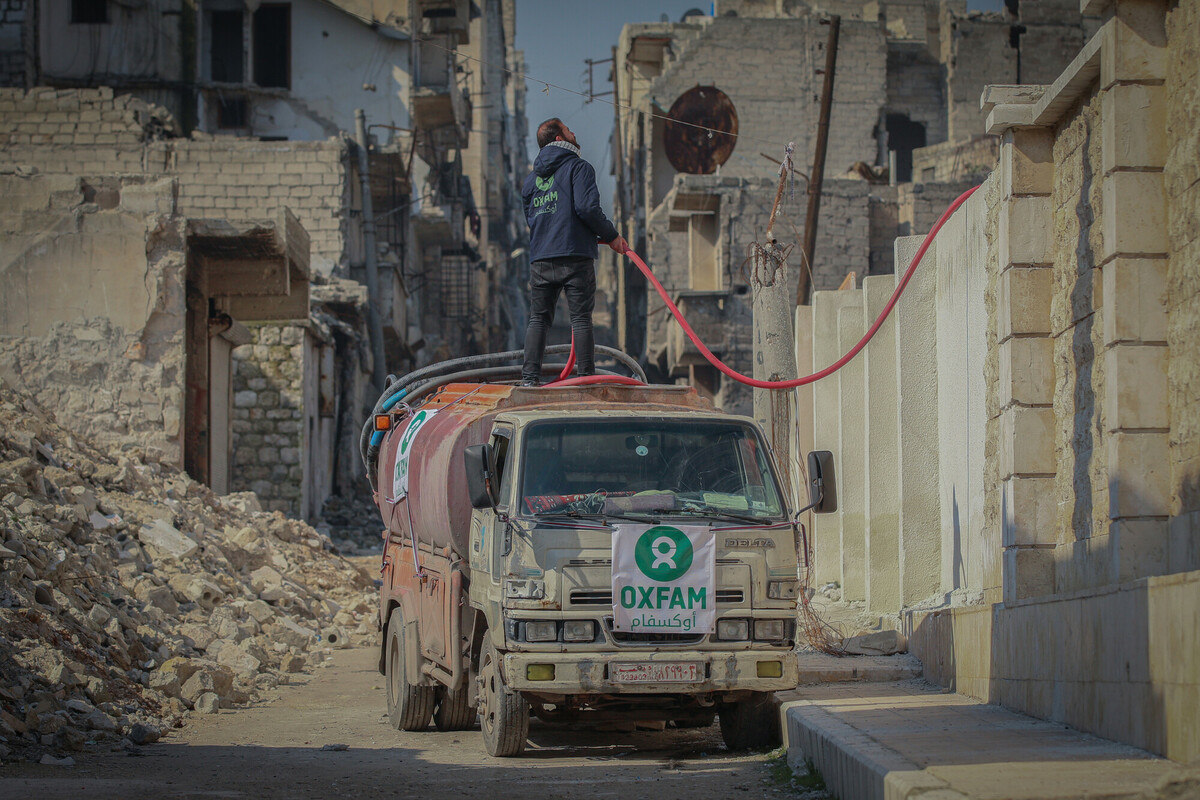By Jamie Livingstone, Head of Oxfam Scotland
For many, mourning their loved ones will need to wait.
Devastating earthquakes in Türkiye and Syria have killed thousands.
But for survivors, this disaster is far from over.
“The scale of destruction is vast”, says my Oxfam colleague Meryem Aslan in Türkiye. “Following two big earthquakes and over 60 aftershocks, people are still in shock and fear, they don’t even have time to mourn the lost ones.”
People were asleep in their beds when the first earthquake struck on Monday morning. At a magnitude of 7.8, the quake in Türkiye’s Gaziantep province was the strongest to hit the region in almost 100 years. Those who escaped with their lives did so with little else.
Multiple strong aftershocks were felt across the region, including in Syria, Lebanon and Israel. And a further 7.5 magnitude earthquake followed just nine hours later.
13 million people in Türkiye alone are estimated to have been affected, including hundreds of thousands of Syrian refugees living in the worst-hit Turkish provinces.
Local responders continue to search through the rubble for survivors, driven on by hope.
But the scale of this disaster means yet more challenges for those affected, with freezing temperatures further complicating rescue efforts.
Many buildings have been reduced to rubble or have become too dangerous to enter. The full extent of the damage to infrastructure will take time to assess, but it’s estimated that around 6,000 buildings in Türkiye have collapsed, including key hospitals and intensive care units.
The destruction extends across the border into Syria, where thousands more people have lost their lives. The cities of Aleppo, Latakia, Hama and Idlib have been badly hit by both earthquakes and continuous, severe aftershocks that have driven people into wintery streets in fear that further buildings may collapse.
This tragedy has unfolded during a time of compounding crises in Syria, with over 15 million people already in need of humanitarian assistance even before the earthquakes struck. Syrians have already suffered through more than a decade of brutal conflict and have been hit hard by inflation and soaring food prices. 12 million people in the country don’t know when their next meal will be, or where it will come from. For them, Monday’s earthquakes are the latest in a long line of disasters.
Members of the Disasters Emergency Committee – including Oxfam – are already among the first responders on the ground, working with locally-led relief efforts.
The immediate focus is on saving lives, alongside helping people who have been injured or lost their homes by providing medical care, temporary shelter and blankets. Other priorities are food and supplies of clean water, as well as sanitation, to prevent the spread of water-borne diseases such as cholera which is already present in north-west Syria.
The scale of needs is huge, and people need help now.
And while people in Scotland’s first instinct may be to donate items to send to those impacted, we would instead urge them, if they can, to consider supporting the new DEC Turkey-Syria Earthquake Appeal. Donations from people in Scotland will make a huge difference in helping us to reach more survivors.
How to donate to DEC:
Online: www.dec.org.uk
Phone: 0370 60 60 610. Standard geographic charges from landlines and mobiles will apply
SMS: text SUPPORT to 70787 to donate £10.
Over the counter: donate over the counter at any high street bank or post office
Or send a cheque by post to Post: DEC Turkey-Syria Earthquake Appeal, PO Box 999, London EC3A 3AA.
This article originally appeared in Scotland on Sunday/The Scotsman.
